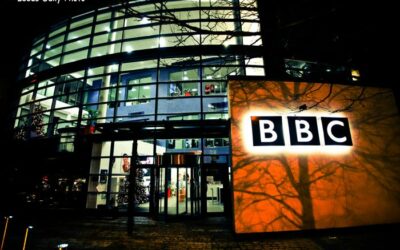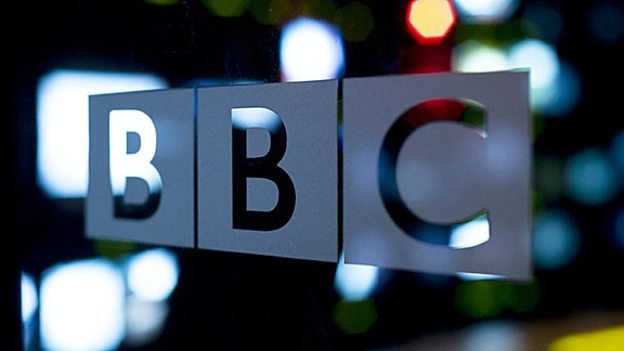The BBC has outlined plans to become the most transparent newsroom in the world, as well as investing millions into online services. However cost cutting measures include a major reduction in commissioning.
The commitments have been published in its Annual Plan for 2023/24, which also shows that the BBC is the country’s “number one brand for media.” It’s used by 9 out of 10 adults, with audiences spending more time watching BBC and iPlayer than Netflix, Disney+ and Prime combined.
The corporation also stated that it spent more on, and also commissioned more hours of UK-originated television content than any other organisation.
“The BBC’s performance in delivering against its strategic priorities has been outstanding, particularly in such a challenging financial setting and against a backdrop of increased competition. This plan sets out how we will best serve all audiences by making the most of our resources in the coming year,” stated Richard Sharp, Chairman of the BBC.
Looking ahead to the next 12 months, it said that it would be “opening up more of our workings” to make BBC News “the most transparent newsroom in the world, building trust and impartiality.” According to the latest statistics, BBC News is the most popular news service and BBC is the biggest news website in the world.
The transparency of BBC News will be done by giving greater air (and online) time for analysis.
Its major broadcasts would including The Coronation of The King and The Queen Consort and Eurovision 2023. It would also be investing in its online services, with an additional spend of £50m per year by 2025/26.
Meanwhile, it commercial arm, BBC Studios’ will be undergoing a 5 year growth plan to grow income for the broadcaster.
“Our plans outline an ambitious year of creative excellence from the BBC, with trusted news and high quality content to provide the best value for all audiences. This year we will bring people together like no other organisation can with the Coronation and Eurovision amongst the highlights,” added Tim Davie, Director-General.
The BBC also confirmed that the savings that it was having to make as part of the 2022 licence fee settlement have rocketed due to the “economic environment, including exceptionally high inflation in the industry”. So rather than an annual savings requirement of £285m by the end of the Charter in 2027/28 it will now be £400m.
That will mean an annual reduction of 1000 hours in content commissions across the BBC. Moving a number of World Service TV and radio broadcast services to digital. Creating a “single, integrated BBC News Channel operations” with 2 feeds for UK and global audiences.
“There will be more of these difficult choices to come this year, but we will make them with audience value at the forefront of our thinking, balancing the needs of those increasingly consuming content online with those who continue to consume primarily through broadcast services,” reads the foreword.
“However, we go into the year in a strong financial position and with savings and inflation mitigations in place to help us manage through this second year of the settlement.”
Future trends
The report said that looking ahead it expected to see the continued adoption of online services across all forms of media. However, it anticipated a slow growth or decline of SVOD subscriptions, with more consumers turning to free alternatives like iPlayer and ITVX. Also there could be a rise in FAST, or Free Ad Supported TV services.
It added:
“We also expect to see a continued squeeze on the time spent with traditional broadcasters. Ofcom’s data shows that in 2021 broadcasters (like the BBC and ITV) share of viewing (across broadcast and on-demand; out of total viewing across broadcasters, SVOD, gaming and other video including YouTube) fell from 67% in 2019 to 61% in 2020 to 59% in 2021 as audiences continued to adopt new services and spend more time with them5.
“We anticipate a continued rise in substitutes to traditional media – particularly from short- form video; social media and gaming.”
Russia, China and global tech
The report also outlined some of the future “challenges” to the UK media ecosystem.
It points to 4 challenges to the UK’s “world-beating” media sector:
- The impact of large global provides, like Netflix and Disney. These aren’t incentivised to create content that is distinctly British or to reflect all parts of the UK. With only 8% of Netflix content and 3% of Disney content being UK-originated the report says this may “significantly reduce” viewers’ time spent with UK video content.
- Again looking at distribution platforms like Amazon, Apple and Google. It says that they are “incentivised to promote their own content and services at the expense of the prominence and discovery of UK public service content.” This it says will make it more difficult for audiences to find UK programming.
- The third point is aimed at “foreign states like Russia and China” which are investing in the development of services and “ensuring influence via third party platforms, risking the distortion of the global public’s understanding of critical issues like the war in Ukraine and the treatment of the Uyghur population in North-West China.”
- Finally it says that with over 90% of the UK population now using the internet regularly, it may be necessary to begin planning for an “internet-only future.”
The report stated:
“These challenges are too large and too complex to tackle in an uncoordinated and piecemeal fashion, and we must take them on as an industry in collaboration with regulators and government.
“The risk if we do not is severe – risking the erosion of a common British culture with its roots in shared experiences; the dilution of UK-led innovation; a reduction in economic impact and a weakening of the UK’s global soft power. The opportunity if we do is similarly large – providing a thriving, shared culture that supports many British identities, national, regional and local; greater innovation and more control over the UK’s destiny in an online-only world; increased economic returns and a strengthening of the UK’s influence.”










